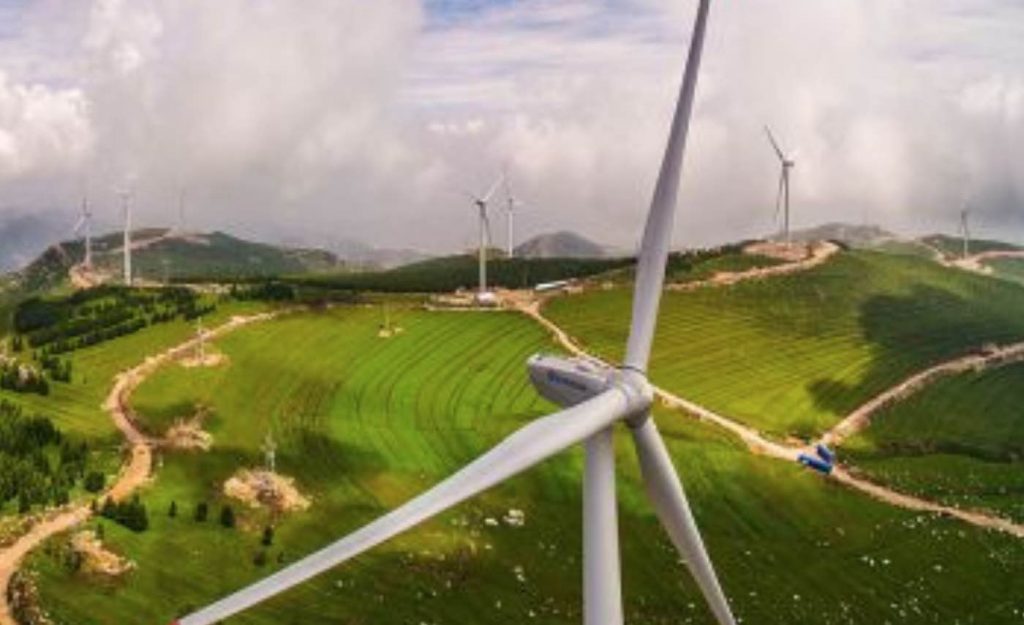In The Wake Of Lockdowns Coal and Natural Gas May Look Like the Biggest Covid-19 Casualties
by Andy Corbley
In several articles this year, Good News Network has reported on the precipitous decline of coal production—and rise in renewables, as market forces along with the decisions of individuals and investors create a pandemic of pressure.
Now in the twilight of the European COVID-19 wave, early signs suggest there is not going to be much in the way of a recovery for coal—or natural gas—which are becoming COVID-casualties, as they lose ground to renewable energy as each fiscal quarter passes.
“What’s front and center has been the extreme volatility and carnage that’s occurred in the energy sector. These companies are now in survivor mode,” said Jennifer Rowland, Senior Analyst, at Edward Jones, according to Future Crunch.
Natural gas gains might be wiped out
With a summer that was one of the warmest on record in many parts of the world, an oversupply of natural gas has caused the sharpest ever fall in demand for the commodity. The fall is expected to reach double that of the 2008 financial crisis, around a 5% drop.
“Natural gas has so far experienced a less severe impact than oil and coal, but it is far from immune from the current crisis,” said executive director of the International Energy Agency, Dr. Fatih Birol. “The record decline this year represents a dramatic change of circumstances for an industry that had become used to strong increases in demand.”
The energy watchdog speculates that demand will continue to contract until 2025, eliminating the last few years of growth in the gas sector. Furthermore, those last few years have seen $65 billion of investments in liquified natural gas assets, which are now coming online in this unstable economy. The result is a serious risk of global oversupply, compromising the structure of the gas market, and reducing the chance that any investors will find sense in backing this expansion any further.
Coal abandonment
The strong increases in demand which Dr. Birol is referring to is often a result of gas as a natural replacement to coal. Without perfect solutions for the storage of energy generated by renewables, gas has often taken the place of coal, which has fallen significantly even as governments continue to invest hundreds of billions in coal projects, many of which are now at risk of being so expensive to operate they may become stranded assets—projects incapable of providing a return on investment.
The United Kingdom didn’t even power up a coal-fired plant for a period of two months. From April 10th to June 17th, with wind energy alone supplying almost as much electricity as natural gas did in the first quarter.

After 52-days of zero coal-generated power in Portugal, the utilities company EDP announced the closure of the last plant two years ahead of schedule. They are the fourth European country to completely phase-out coal behind Austria, Sweden, and Belgium.
Renewables surge in the U.S.
In the USA, renewables will account for over a fifth of electricity generation this year, having at one point surpassed coal usage every day for a month, which hasn’t happened for 150 years (since the Statue of Liberty first arrived in New York and Karl Benz patented the world’s first automobile).
Larry Fink, CEO of BlackRock, the world’s largest asset management company, wrote a letter earlier this year to the executives that rely on Fink for money management services, in which he stated that his number-one prerogative for investing would be how companies are planning to combat climate change.
“We will be increasingly disposed to vote against management and board directors when companies are not making sufficient progress on sustainability-related disclosures and the business practices and plans underlying them,” wrote Fink.
Many other brokerage firms rely on BlackRock for advice and guidance, and Fink’s decision could move mountains in the financial sectors.
With all these triumphs, it’s important to point out that many governments are reluctant to put down coal. It’s still easier to store than renewables, in many cases because the infrastructure is already there. Furthermore, existing plants and companies that rely on coal spend a lot of money lobbying governmentsto keep their industry alive.
But despite countries still clinging to coal, like Germany—which just opened a new coal plant—and others nations across Asia, market forces are far more powerful than the actions of government. Energy firms require billions in investment capital from people like Larry Fink in order to fund coal projects, and people like Larry Fink aren’t interested in coal and natural gas any longer.
Leave a comment